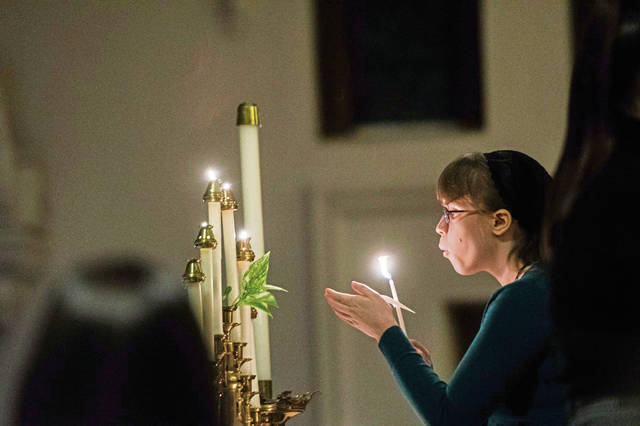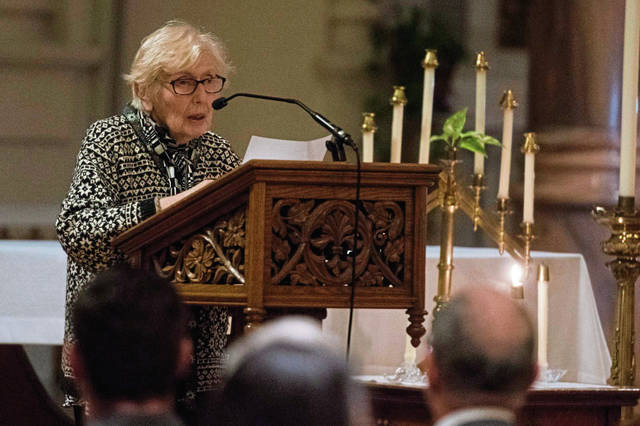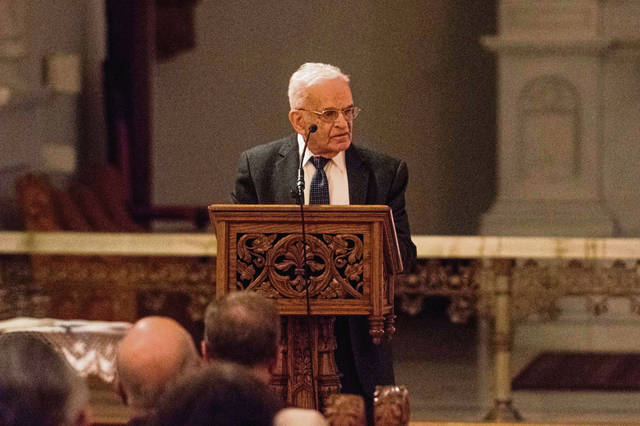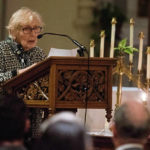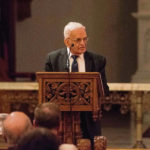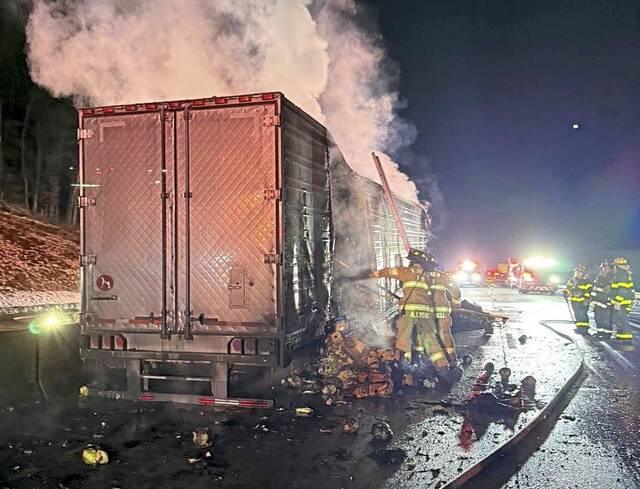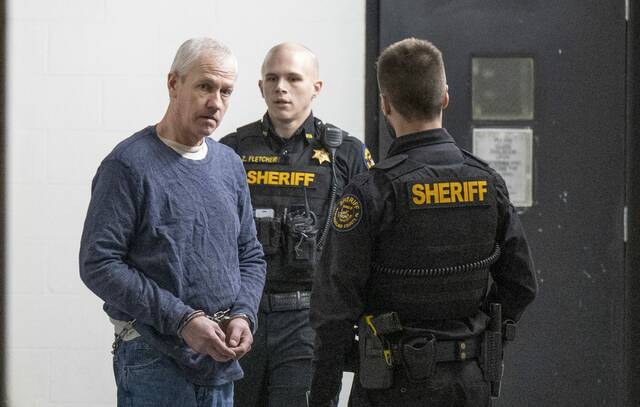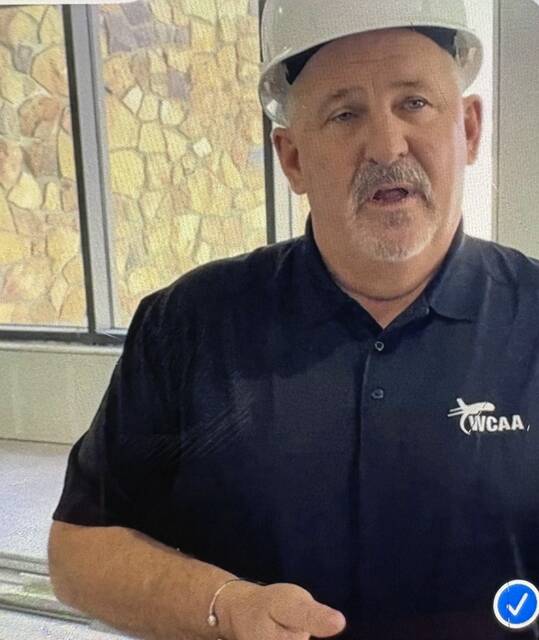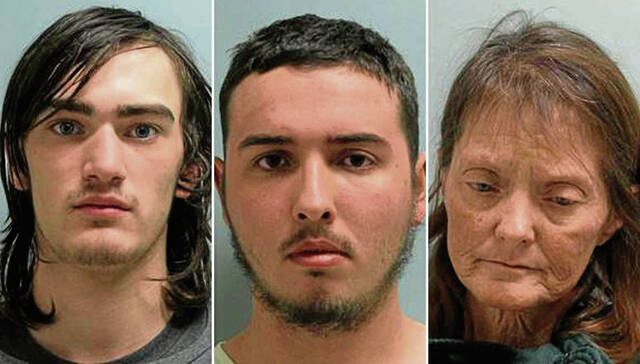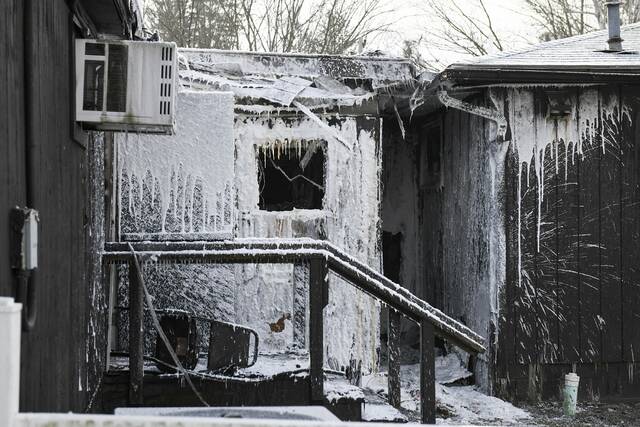For Walter Jacob, Nov. 8, 1938, was largely a day like any other. He was 8 and living in Augsburg, one of Germany’s oldest cities.
That night, he walked to the nearby synagogue, where his father was the rabbi, and took a peek inside.
“I didn’t realize that it would be for the last time,” Jacob said.
By the next evening, Jacob and other members of the German Jewish community would find themselves caught up in what would come to be known as “Kristallnacht,” or “the Crystal Night,” alluding to shattered glass from the windows of Jewish-owned stores and synagogues destroyed by civilians and paramilitary forces. The attacks were a precursor to the horrors of the Holocaust.
Jacob was the featured speaker at Seton Hill University’s interfaith service of remembrance for Kristallnacht on Tuesday night, along with two other survivors.
But even as Kristallnacht was beginning in his hometown, Jacob — who today is rabbi emeritus at Pittsburgh’s Rodef Shalom congregation, part of a family line of rabbis stretching back four centuries — did not fully grasp what was happening.
“I woke up the next morning to see fire trucks. It was so exciting for an 8-year-old: Fire trucks outside!” Jacob said. “But then a group of people came into our apartment and said to my father, ‘You set fire to your building, and you’re going to blame us for it.’”
That was the last time Jacob saw his father for more than a month.
His father, along with scores of Jewish men, were “arrested, for no crime, and taken away in whatever clothes they had on,” Jacob said.
Jacob said his father was essentially forced to sell his shop in Augsburg for 20,000 Deutsche marks, which would be placed into an account, able to be withdrawn by the family at a rate of 50 marks per day.
As the family waited to find out if they would ever see Jacob’s father again, his mother stood in line at the U.S. consulate for two days, only to be told passage to America could take up to two years.
“That was not good news for us,” Jacob said.
His father was allowed to return home two weeks later, and the family began planning to emigrate to America. Jacob’s father was able to book passage to England after receiving special permission as a Jewish scholar but could not bring his family.
By March 1939, Jacob said, his mother saw German tanks on the roads leading to Czechoslovakia and other countries.
“Would war begin? We didn’t know,” he said. “But she picked up the phone and called my father in England. She said, ‘We’re coming tomorrow,’ and hung up the phone.”
By that time, Jacob said, daily life in his hometown “was impossible for Jews.” But even as they sailed across the English Channel, the Jacob family did not realize the full extent of what was happening in their home country.
That changed with the accidental delivery of a copy of the New York Times.
“That was how we found out this was happening everywhere,” Jacob said.
The family reached the U.S. in 1940, and Jacob’s father spent the next two years helping his former congregants reunite after being dispersed all over the world as they fled Nazi Germany.
For Jacob, the annual anniversary of Kristallnacht produces conflicting emotions.
“It is not a day of celebration,” he said. “It is a day of warning and caution, but we were alive, and that is what we celebrate.”
Below, see video from speaker Ruth Drescher of Pittsburgh, whose husband is a survivor of the Tree of Life synagogue shooting last year in Pittsburgh’s Squirrel Hill neighborhood.


